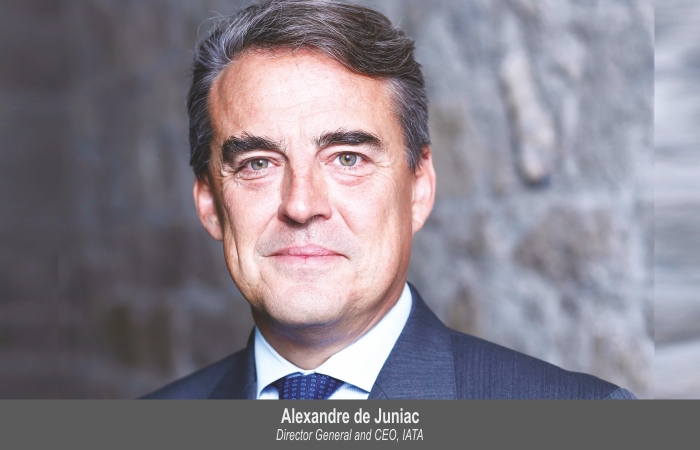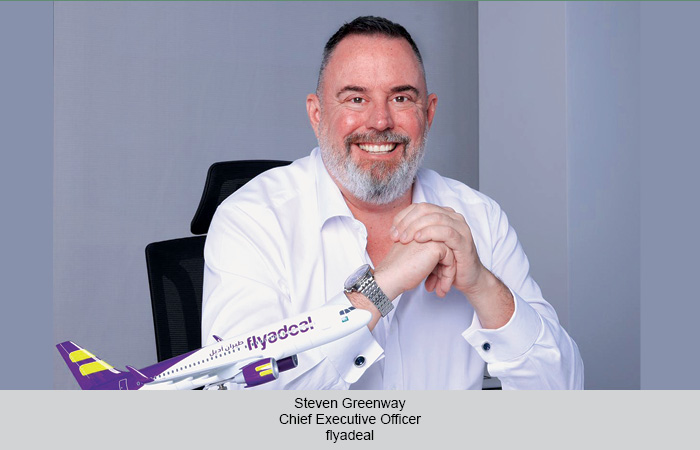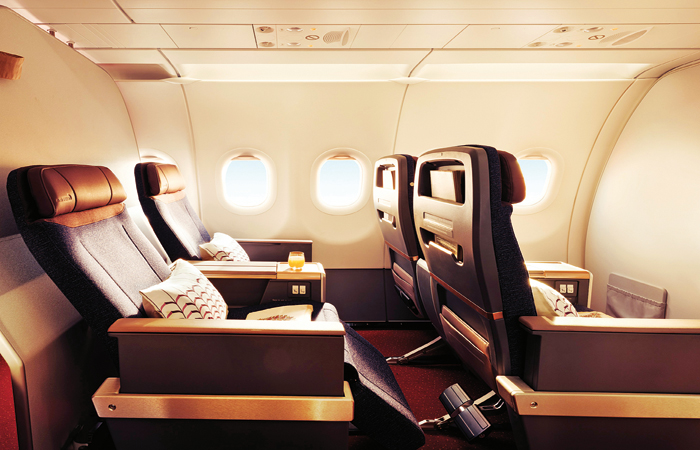At a recent conference, Alexandre de Juniac, IATA’s Director General and CEO reiterated the new call for
systematic testing of all international travellers before departure as this would enable governments to safely
open its borders without quarantine.
The key to restoring the freedom of mobility across borders is systematic COVID-19 testing of all travellers before departure. This will give governments the confidence to open their borders without complicated risk models that see constant changes in the rules imposed on travel. Testing all passengers will give people back their freedom to travel with confidence. And that will put millions of people back to work,” said Alexandre de Juniac, Director General and CEO, IATA.
He reiterated, “We did not come to this decision lightly. The integration of systematic testing into the travel process will present logistical challenges and impact how people travel, it will need testing manufacturers to develop tests that can be deployed that are fast, accurate, scalable, affordable and easy to use. And, considering the potential scale of the testing required, non-medical personnel will need to be able to operate it effectively and it will need governments and health authorities to agree on common standards so that tests administered in the departure country are accepted on arrival.”
“If you look at the uptake in travel since the cautious re-opening of borders beginning in June, the results have been dismally disappointing. International travel was at just 8% of its year-ago levels in July. There were little signs of improvement in August. So the summer travel season did not deliver any real bounce to the industry’s restart. And it is hard to see a major uptick in corporate travel amid the concerns of a second wave of COVID-19 infections. Quarantine measures are killing the industry’s recovery. Some 83% of travellers in a recent 11-market survey said that they will not travel if there is a chance of being quarantined at their destination. That is a very clear signal that this industry will not recover until we can find an alternative to quarantine,” de Juniac stated.
He added, “We believe that an alternative to quarantine is systematic 100% testing of all travellers before departure. And the same public opinion poll tells us that this is what passengers will accept. 84% agreed that testing should be required of all travellers, while 88% agreed that they are willing to undergo testing as part of the travel process.”
Addressing challenges
He continued that challenges need to be addressed as follows.
Cooperation: We will work with the airports and other partners on how to include systematic testing in the travel process. Testing should not be a permanent fixture, so we could be creative with solutions. It’s a challenge, but we have done it with the growing footprint of security in the travel process. And we should not forget that there are many testing programmes in place as part of the travel bubble or travel corridor concept that is being pursued bilaterally by some governments. These are giving us practical knowledge of what will be needed to do testing on the scale that would be required for a full industry restart.
But we firmly believe that testing must be done before departure. This seals off the system. In addition to giving governments the confidence to reopen borders, this approach will also boost passenger confidence knowing that everybody on the aircraft has been tested. And, by doing it in the travel process which is tightly managed, we are avoiding issues of quality control or fraudulent results.
Availability: Testing technology is rapidly developing. Roche and Abbott, for example have tests that meet most criteria but need medical personnel to administer them. The speed at which testing capabilities are advancing tells us that we will have deployable options in the coming weeks. And by signaling now that this is the industry’s preferred option, we are sending a strong message to the market that should accelerate development and earmark aviation as a big customer.
Global Standards: Testing will only be meaningful if results at departure are accepted on arrival. This is where the leadership of the International Civil Aviation Organization (ICAO) CART process which brings together governments, the health authorities through WHO and the industry — will be critical.
We are proposing that governments agree to testing standards through ICAO. The CART process has been efficient so far with the ‘Take-off’ guidelines being widely accepted and implemented. We will be working closely with ICAO and the health authorities to make this next step a success as well.
Public Opinion
- IATA’s public opinion research revealed strong support for COVID-19 testing in the travel process. Some 65% of travellers surveyed agreed that quarantine should not be required if a person tests negative for COVID-19.
- Passengers’ support for testing is evident in the following survey results:
- 84% agreed that testing should be required of all travellers
- 88% agreed that they are willing to undergo testing as part of the travel process
- In addition to opening borders, public opinion research also indicated that testing will help to rebuild passenger confidence in aviation. Survey respondents identified the implementation of COVID-19 screening measures for all passengers as effective in making them feel safe, second only to mask-wearing. And, the availability of rapid COVID-19 testing is among the top three signals that travellers will look to for reassurance that travel is safe (along with the availability of a vaccine or a treatment for COVID-19).
Global Connectivity
International travel is 92% down on 2019 levels. Over half a year has passed since global connectivity was destroyed as countries closed their borders to fight COVID-19. Some governments have cautiously re-opened borders since then, but there has been limited uptake because either quarantine measures make travel impractical or the frequent changes in COVID-19 measures make planning impossible.
The economic cost of the breakdown in global connectivity makes investing in a border-opening testing solution a priority for governments. The human suffering and global economic pain of the crisis will be prolonged if the aviation industry—on which at least 65.5 million jobs depend—collapses before the pandemic ends. And the amount of government support needed to avert such a collapse is rising. Already lost revenues are expected to exceed $400 billion and the industry was set to post a record net loss of over $80 billion in 2020 under a more optimistic rebound scenario than has actually unfolded.
 TravTalk Middle East Online Magazine
TravTalk Middle East Online Magazine





